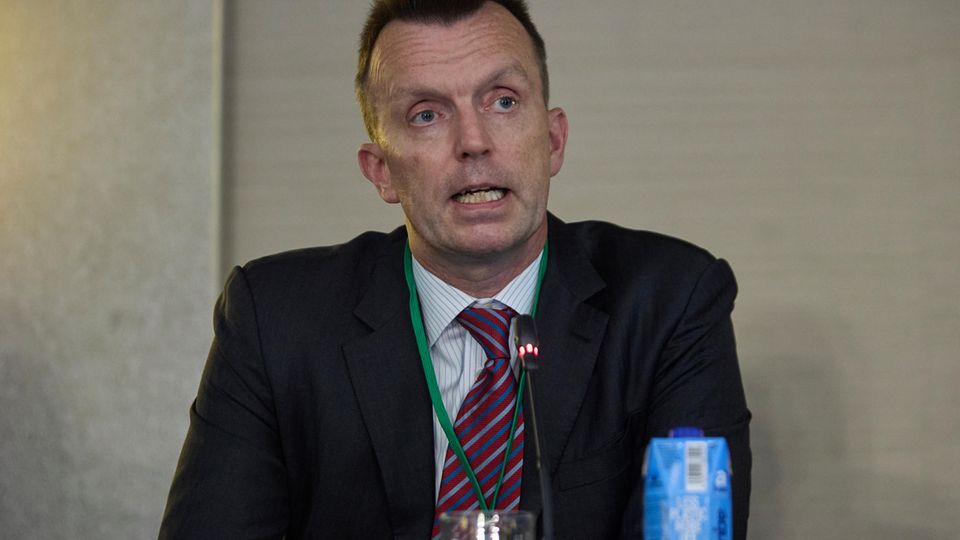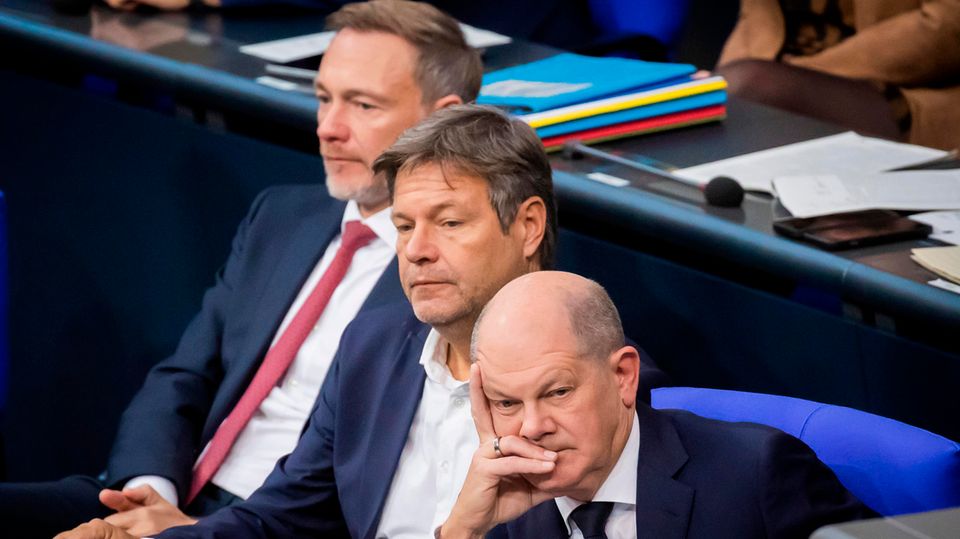Dispute over fiscal rules
What exactly is this debt brake? And why do they even exist?
Follow, circumvent or reform? The debt brake is a controversial topic in the Berlin Reichstag (symbolic image)
© Torsten Sukrow / Sulu Press.de / Picture Alliance
After the Federal Constitutional Court’s budget ruling tore a billion-dollar hole in the traffic light government’s coffers, there is heated debate about the debt brake. But what is that actually?
The SPD and the Greens want to redesign it – and have economic experts and even CDU prime ministers on their side. The FDP doesn’t want to touch them – and CDU leader Friedrich Merz knows that they are in their camp Debt brake.
Since the Federal Constitutional Court declared the Traffic Light Coalition’s 2021 supplementary budget to be unconstitutional, the fiscal rule has been on everyone’s lips again. Now the struggle is over how the 60 billion hole that the Karlsruhe decision tore in the federal government’s financial plan should be plugged: by respecting or reforming the debt brake?
But what is the debate about so passionately? An explanation:
The debt brake in Germany obliges the state to operate economically and avoid taking on new debt. Article 109, paragraph 3 of the Basic Law states: “The budgets of the federal and state governments must generally be balanced without income from loans.” The state can only spend as much money as it takes in.
While the federal states have not been allowed to incur any new debt since 2020, the law provides a certain amount of leeway for the federal government. Article 115 grants him structural, i.e. independent of the economic situation, annual new debt of up to 0.35 percent of gross domestic product (GDP). Accordingly, in 2022, for example, the federal government would have been allowed to take on additional debt of around 13 billion euros, given the GDP at that time of around 3.88 trillion euros. In addition, economic-related deviations are possible, but these must be compensated for. This means that in economically bad times the permissible net borrowing is increased and reduced to the same extent in good times.
Debt brake provides exceptions for crises
An exception regulation is also intended to ensure the federal government’s ability to act in cases of crisis. The loan limits can be exceeded “in the event of natural disasters or exceptional emergency situations that are beyond the state’s control and have a significant impact on the state’s financial situation”, provided that the Bundestag decides to do so with a simple majority and a repayment plan is presented.
The debt brake was introduced in 2009 under the then Chancellor Angela Merkel (CDU) and her Finance Minister Peer Steinbrück (SPD). In the midst of the global financial and economic crisis at the time, the law was intended to stabilize the budget situation of the federal and state governments in the long term. In addition, with the regulation, the grand coalition implemented the demand for budgetary discipline that was enshrined in the treaty establishing the European Community (EC) and was largely articulated by Germany. Article 104 of the EC Treaty begins with the sentence: “Member States shall avoid excessive public deficits.”
Old arguments are being dug up again
The introduction of the debt brake was preceded by passionate debates. The then opposition Greens and the Left Party, among others, were strictly against it. They argued that the state was restricting its own ability to act too much with the fiscal rule. The supporters, however, pointed out that as the mountains of debt grow, the state has to spend more and more money on interest. This results in even greater restrictions and puts a burden on generations of children and grandchildren.
This debate has now flared up again. Those calling for legal reform see important investments in infrastructure and future-relevant technologies at risk from the debt limit. In her opinion, dilapidated schools or bridges and a worsening climate crisis, for example, are a burden that is left to the next generations. Defenders of the debt brake, on the other hand, warn against the state becoming over-indebted and advocate spending cuts in order to close the budget gap.
A short-term reform of the debt brake is unlikely anyway, as the Basic Law would have to be changed. But this requires a two-thirds majority of supporters in the Bundestag and Bundesrat, and that does not currently exist.
Sources: Basic Law of the Federal Republic of Germany,Federal Agency for Civic Education, Federal Ministry of Finance, Friedrich Ebert Stiftung




